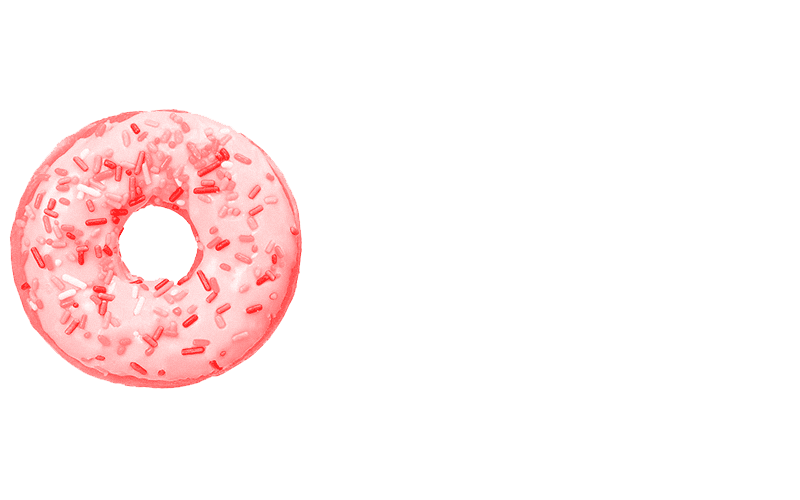I specifically hoped not to be an old person that longed for the good old days, but, well, here’s the deal: I remember when binge was considered a bad word. Now, it is a weekend plan. And I’m not talking about those darn kids today; I’m talking about my weekend plan.
Decades ago, the only time I heard the word was when someone was characterized as a “binge drinker” or possibly a “binge eater” and such descriptions were assigned with pity, or sometimes even disdain. It was never a compliment, and it surely was never a self-description. Now, me and a zillion others proudly anticipate “binging” a television series as a source of entertainment, and strikingly, even as a source of self-care.
Stay with me now.
Here’s what has me perplexed: The word itself means doing something excessively, and to do anything excessively means doing it more than is reasonable or acceptable. If that’s still true and the English language hasn’t shifted just yet, then to binge means to do something too much.
All this to say: I’m (re-)watching The Office. Hilarious. So, so funny. Deep, loud laughter emerges from my body in a way that frightens the neighbors. It is so good. But I can’t seem to stop! An episode ends, and I know that I said it was the last one for the night, but another begins, and the opening is so funny, so I think that I’ll just watch a couple of minutes, and then it’s the entire episode, and then it ends, and I know that I said it was the last one for the night, but another begins . . . You get the picture.
I should clarify that “discipline” is my greatest strength, and what I find concerning is that more and more I recognize in myself the lack of my greatest strength, and in more ways than watching The Office. This is why I am writing today, to sort through my troubled mind, as well as processing what I suspect is a broader sociological phenomenon.
•
In 1992, Bruce Springsteen released the album, Human Touch, and the third track was a little song titled, “57 Channels (And Nothin’ On).” It was not one of his biggest hits, but it was one of the most-played songs on rock stations that year, and I remember it well. The Boss sang:
I bought a bourgeois house in the Hollywood hills
With a trunkload of hundred thousand-dollar bills
Man came by to hook up my cable TV
We settled in for the night my baby and me
We switched ’round and ’round ’til half-past dawn
There was fifty-seven channels and nothin’ on
Fifty-seven channels and nothin’ on
Fifty-seven channels and nothin’ on
Is that not hilarious? Only 57 channels? Those of us who use “fifties” to describe our age now remember what might prompt such a song. We remember a time with 13 channels, although in reality, there were only maybe four. The Boss’s incredulity was understandable to most of the world in 1992: how excessive was 57 channels!?! Now, we have 57 apps on our televisions, each one filled with never-ending options.
The shift has been nothing short of remarkable. It goes beyond the number of shows we can call up at any given time — even the shows we watch often have options within. For example, it isn’t enough to watch the news: You watch the crawl at the bottom of the screen to get more news than the news you are currently watching. It isn’t enough to watch a game: You watch the crawl at the bottom of the screen to get more scores than the game you are currently watching, including statistics, win probabilities, betting lines, fantasy updates, and more.
[Adopt crotchety-old man voice:] In my day, you had to get up off the couch just to change the channel! And in my day, there were these things called “commercials” that interrupted the show without a skip option if you can believe it. And craziest of all: After your favorite show ended, you had to wait an entire week to watch the next episode.
I guess I’m wondering if there might have been some good in those old days? Doesn’t sound right, but maybe something about less options and more waiting?
•
My dad was a child in the 1920s, a full century ago now, and he told a certain story that may or may not have been true. Honestly, it sounds more like an adventure of Tom Sawyer, but regardless, he told me that his first job was working in a general store and that on the very first day his new boss told him that he could eat all the candy that he wanted from the candy counter. So, day one, he ate himself sick of candy and soon discovered that he was never tempted to eat from the candy counter again. That was the story, and it was obvious that my dad admired the Solomon-like wisdom of that old storeowner.
Now, I’m afraid that such wisdom is outdated, too. I, for one, am sensing the tendency to eat myself sick of candy, then eat myself sick of candy again, and again, and again, and again. I’m talking way beyond television, of course. Overconsumption of snacks, scrolling social media, or many other forms of entertainment, among other possibilities. The sky appears to be the unfortunate limit.

When I think back to my law school days, the work product I am most proud of is a paper I wrote for Professor Ellen Pryor in a seminar course on “Law and Morality.” I titled my paper, “Enough Already: How Lawyers Can Respond to the Problem of Greed.” Within, I wrestled with the question: How should a lawyer respond to greed? And as I considered the various definitions of the ancient concept, one of the original seven deadly sins, I found a contemporary theologian’s one-word definition the most compelling. Stanley Hauerwas answered an interviewer’s question, “So, what is greed?” with a single word: “More.”
That seems to work for the binge mentality that I am wrestling with today. More. Always more. Never enough.
To really get ugly, gluttony is yet another of the seven deadly sins, which I once saw defined as habitual greed. “More” but as a habit. That starts to sound disturbingly familiar. I wonder if gluttony is just another way of saying binge mentality?
•
I like to picture Jacques Ellul at his writing desk in the early 1950s, somehow able to peek into our present century. The French sociologist published a book in 1954 that was later translated into English as The Technological Society. If you can imagine, in the year before Bill Gates and Steve Jobs were born, Ellul published a book that predicted that technology would be presented as a servant of humanity but would eventually overrun the world and become its master. In the foreword to the English translation, famed American sociologist, Robert K. Merton described Ellul’s argument by saying, “Ours is . . . a civilization committed to the quest for continually improved means to carelessly examined ends.”
I’m old enough now to understand and remember the desire for improved means. I spent a lot of time watching television as a child while wishing for improved means. Now, I’m wondering if anyone spent real, slow, quality time examining the ends that those improved means would produce? The ends that we are now experiencing?
•
Stephen Covey shared an illustration in one of the books in his Seven Habits empire. Covey proposed something he called the “law of the farm” in contrast to something like cramming for an exam in school. For the latter, you might be successful, but cramming simply will not work on the farm. You can’t cram for harvest. You have to plant in a certain season, water, and cultivate, and only when you have patiently and consistently performed all of the above and the time is right will you reap the harvest. On the farm, all things must come in due time.
Maybe one of the things that works best by the law of the farm is a human being. Maybe, we discover our best when we don’t cram too many things in at once. Maybe, we discover our best when we aren’t rushed, when we learn to wait, and when we go without for a while — until the time is right. Maybe, in all of our progress, we have focused too much on the means so that we have forgotten what we should aim for in the first place: a deliberate rhythm that produces a fruitful life. Maybe “enough” is a more important word to learn than “more.”
•
The Judeo-Christian tradition values the concept of shabbat, or Sabbath, a day set aside for rest and contemplation. The weekly practice creates a rhythm of life: work; work; work; work; work; work; rest; work; work; work; work; work; work; rest; and so on, and so on. It sets in place a habit that reminds you that you actually can stop, regularly, rhythmically. It reminds you that you can do without for a little while. The concept even extends to agriculture, where land lies fallow in regular rotation so that the very earth is renewed and replenished — the law of the farm.
Today, I am considering whether we should devote increased attention to anything that causes us to stop, to rest, to say that’s enough. Anything that trains us to do without and to refuse the temptation to always say yes to more. If not, the continued acceleration in the availability of more and more and more of the things we desire might not end well.
I’m probably being a bit too dramatic. As always, I remain hopeful for the future, but as the great Michael Scott once said, “I’m not superstitious, but I am a little stitious.”•
Source images courtesy of 2happy, Barbara Helgason, Chorna_L, Guzel Studio and Mariusz Blach via stock.adobe.com.




